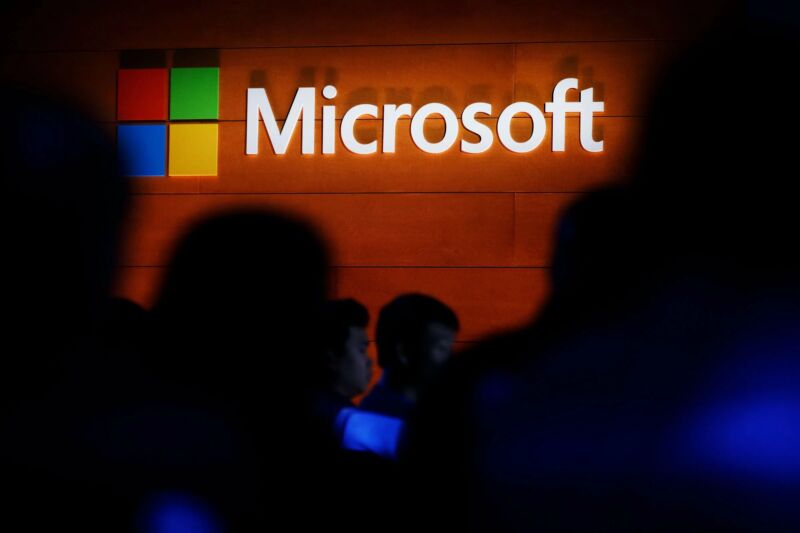[ad_1]

Blame is mounting on Microsoft for what critics say is an absence of transparency and ample velocity when responding to reviews of vulnerabilities threatening its prospects, safety professionals mentioned.
Microsoft’s newest failing got here to mild on Tuesday in a submit that confirmed Microsoft taking 5 months and three patches earlier than efficiently fixing a essential vulnerability in Azure. Orca Safety first knowledgeable Microsoft in early January of the flaw, which resided within the Synapse Analytics element of the cloud service and likewise affected the Azure Information Manufacturing facility. It gave anybody with an Azure account the flexibility to entry the assets of different prospects.
From there, Orca Safety researcher Tzah Pahima mentioned, an attacker may:
- Achieve authorization inside different buyer accounts whereas performing as their Synapse workspace. We may have accessed much more assets inside a buyer’s account relying on the configuration.
- Leak credentials prospects saved of their Synapse workspace.
- Talk with different prospects’ integration runtimes. We may leverage this to run distant code (RCE) on any buyer’s integration runtimes.
- Take management of the Azure batch pool managing the entire shared integration runtimes. We may run code on each occasion.
Third time’s the appeal
Regardless of the urgency of the vulnerability, Microsoft responders had been sluggish to understand its severity, Pahima mentioned. Microsoft botched the primary two patches, and it wasn’t till Tuesday that Microsoft issued an replace that solely mounted the flaw. A timeline Pahima supplied exhibits simply how a lot time and work it took his firm to shepherd Microsoft by way of the remediation course of.
- January 4 – The Orca Safety analysis group disclosed the vulnerability to the Microsoft Safety Response Middle (MSRC), together with keys and certificates we had been in a position to extract.
- February 19 & March 4 – MSRC requested extra particulars to assist its investigation. Every time, we responded the subsequent day.
- Late March – MSRC deployed the preliminary patch.
- March 30 – Orca was in a position to bypass the patch. Synapse remained weak.
- March 31 – Azure awards us $60,000 for our discovery.
- April 4 (90 days after disclosure) – Orca Safety notifies Microsoft that keys and certificates are nonetheless legitimate. Orca nonetheless had Synapse administration server entry.
- April 7 – Orca met with MSRC to make clear the implications of the vulnerability and the required steps to repair it in its entirety.
- April 10 – MSRC patches the bypass, and eventually revokes the Synapse administration server certificates. Orca was in a position to bypass the patch but once more. Synapse remained weak.
- April 15 – MSRC deploys the third patch, fixing the RCE and reported assault vectors.
- Might 9 – Each Orca Safety and MSRC publish blogs outlining the vulnerability, mitigations, and suggestions for patrons.
- Finish of Might – Microsoft deploys extra complete tenant isolation together with ephemeral cases and scoped tokens for the shared Azure Integration Runtimes.
Silent repair, no notification
The account got here 24 hours after safety agency Tenable associated the same story of Microsoft failing to transparently repair vulnerabilities that additionally concerned Azure Synapse. In a submit headlined Microsoft’s Vulnerability Practices Put Clients At Danger, Tenable Chairman and CEO Amit Yoran complained of a “lack of transparency in cybersecurity” Microsoft confirmed sooner or later earlier than the 90-day embargo lifted on essential vulnerabilities his firm had privately reported.
He wrote:
Each of those vulnerabilities had been exploitable by anybody utilizing the Azure Synapse service. After evaluating the scenario, Microsoft determined to silently patch one of many issues, downplaying the chance. It was solely after being informed that we had been going to go public, that their story modified… 89 days after the preliminary vulnerability notification…after they privately acknowledged the severity of the safety challenge. To this point, Microsoft prospects haven’t been notified.
Tenable has technical particulars right here.
Critics have additionally referred to as out Microsoft for failing to repair a essential Home windows vulnerability referred to as Follina till it had been actively exploited within the wild for greater than seven weeks. The exploit methodology was first described in a 2020 tutorial paper. Then in April, researchers from Shadow Chaser Group mentioned on Twitter that that they had reported to Microsoft that Follina was being exploited in an ongoing malicious spam run and even included the exploit file used within the marketing campaign.
For causes Microsoft has but to elucidate, the corporate did not declare the reported habits as a vulnerability till two weeks in the past and did not launch a proper patch till Tuesday.
For its half, Microsoft is defending its practices and has supplied this submit detailing the work concerned in fixing the Azure vulnerability discovered by Orca Safety.
In an announcement, firm officers wrote: “We’re deeply dedicated to defending our prospects and we consider safety is a group sport. We admire our partnerships with the safety neighborhood, which permits our work to guard prospects. The discharge of a safety replace is a steadiness between high quality and timeliness, and we contemplate the necessity to reduce buyer disruptions whereas enhancing safety.”
[ad_2]
Source_link

